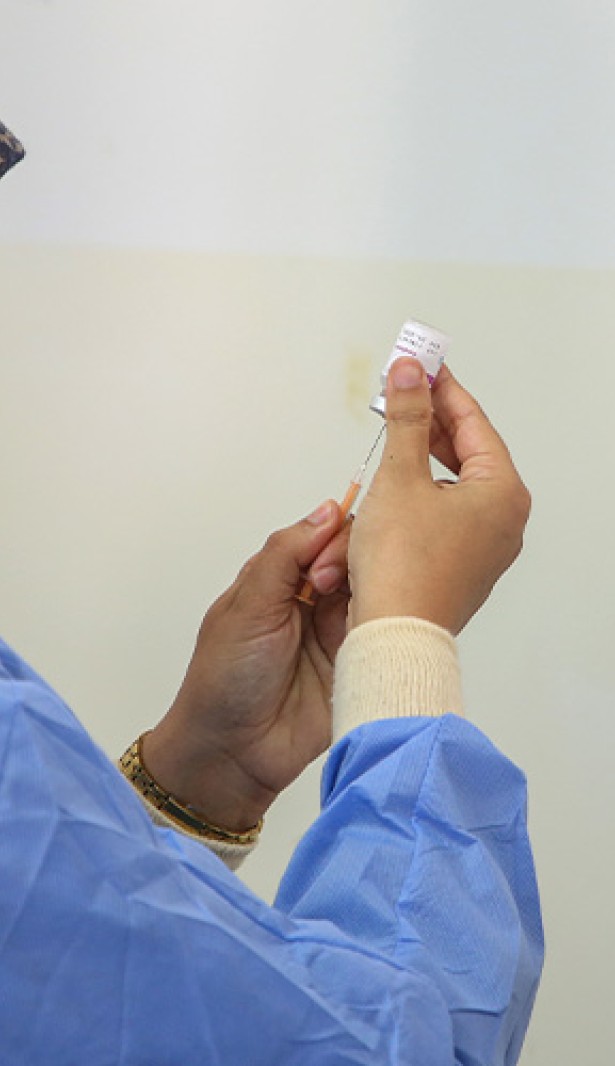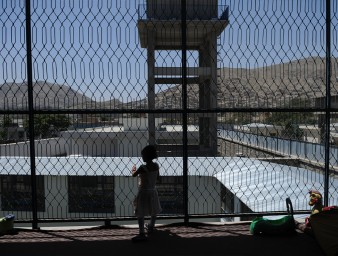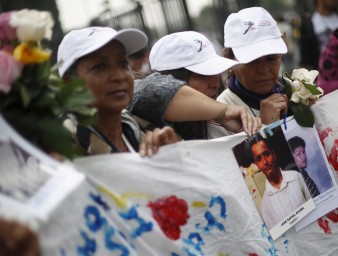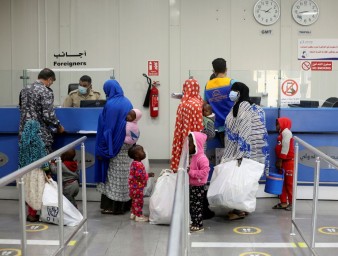Report: COVID-19 increasing risk to migrant rights in Libya
06 September 2021
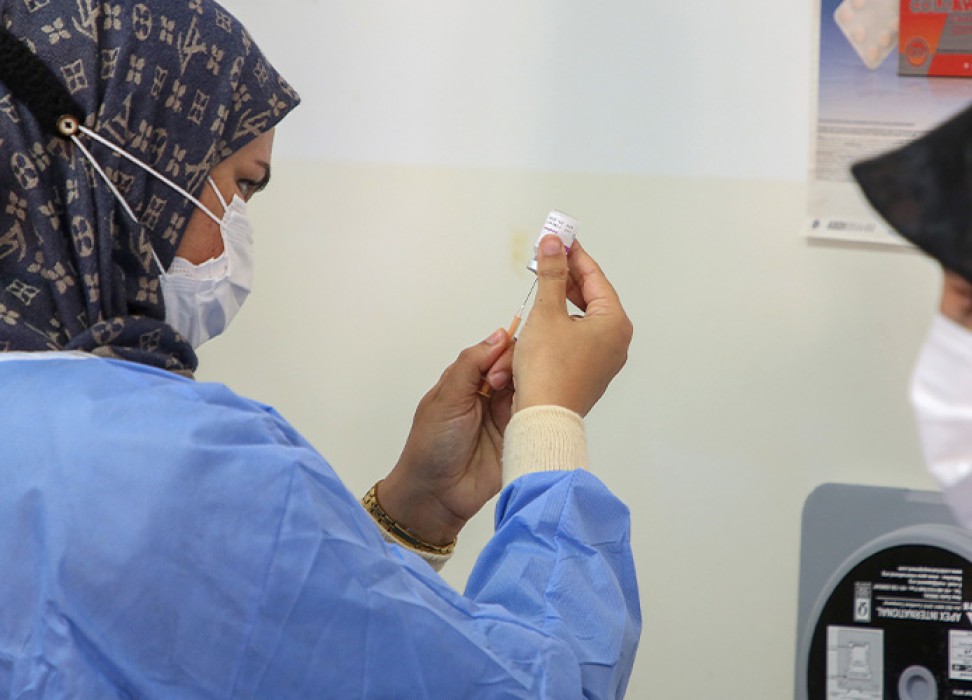
As the COVID-19 pandemic rolls on, so too does its devastating impact on those in the most vulnerable situations. Migrants have been one of the groups very much affected, with their rights to life, health, work and social protection under significant, ongoing threat.
As highlighted by a new report by UN Human Rights on the situation in Libya, the human rights risks for migrants – who already faced violations such as enforced disappearance, physical and sexual violence, arbitrary detention, discrimination, xenophobia, exploitation and trafficking - have only multiplied as a result of COVID-19.
While thousands of migrants continue to take the perilous central Mediterranean route from Libya by boat in search of safety and dignity in Europe, those who remain trapped in Libya, including migrants who are intercepted and forcibly returned to the country, are faced with a precarious and a highly uncertain future.
This has only been worsened by the continued effects of the pandemic.
Based on research and interviews conducted between March 2020 and June 2021, the report looks at migrants’ experiences in Libya in the context of the pandemic, and urges that migrants’ human rights be respected and guaranteed as the COVID-19 response and recovery continues.
Migrants face discrimination when accessing healthcare in Libya
“I was in pain, and bleeding,” said Abdul,* a 16-year-old Sudanese migrant who tried to seek care after being injured in an accident in Tripoli. “I collected money and went to a hospital. I was desperate to stop the pain. Once at the gate, no one wanted to rescue me. I was told that there was no doctor to take care of me. I was asked simply to leave.”
Even prior to the COVID-19 pandemic, access to medical care was at a critical juncture, with health systems in the country overwhelmed and vastly under-resourced. Migrants had even less access to healthcare in Libya than the general population. An assessment by the UN Office for Coordination of Humanitarian Affairs found that almost two-thirds of migrant and refugee households reported difficulties accessing healthcare, in comparison to 50 percent of Libyan households.
With the onset of the pandemic, medical facilities became even more overburdened, and access to testing, prevention and treatment was limited. When vaccines became available worldwide, they were scarce in Libya, and remain so today.
The report details that hospitals and health authorities in Libya have openly discriminated against migrants, refusing to offer them medical services or care on the basis of their migration status.
Many migrants also fear seeking healthcare, due to the risk of arbitrary arrest and detention because of their ‘irregular’ migration status. One woman, who had survived a shipwreck and witnessed men, women and children drown, told of her arrest when she went to a hospital.
“I was so exhausted and traumatised,” she said. “I went to the hospital with a baby and other women. The police came and arrested all of us. We were wet and had no clothes to change into. Instead of taking care of us, we were all taken to a detention centre and locked up.”
In its report, UN Human Rights is calling on the Libyan Government to ensure timely and effective access to healthcare for all people, regardless of their migration status. It is also urging a guarantee that migrants are included in vaccination programmes, with priority given to those who are at high risk of contracting COVID-19.
Racism and xenophobia against migrants on the rise
The report also found that the COVID-19 pandemic ‘fanned the flames’ of already high levels of racism and xenophobiain Libya. Migrants were, and continue to be, painted as responsible for the spread of the virus and other contagious diseases, and face deliberate discrimination in access to healthcare, adequate housing and other basic services as a result.
Social media statements from official accounts of the Libyan authorities said the spread of the virus could be stemmed if ‘illegal immigration’ were stopped. And in Tripoli, people at a protest, including the mayor of a nearby municipality, tried to block the opening of a healthcare facility that aimed to provide care to both migrants and Libyan nationals.
The report calls for action from the Libyan Government to address harmful and negative public discourse related to migrants and migration, including by introducing measures to prevent, monitor and address stigma and incidents of racism, xenophobia, incitement to discrimination, hatred and violence.
The spread of COVID-19 in detention: “Social distancing is just a joke”
Dramatic increases in the number of people held in immigration detention in Libya are also detailed in the report, alongside a rise in COVID-19 cases due to overcrowded and unsanitary conditions and limited testing and medical supplies. As of April 2021, it is estimated that at least 4000 people were being detained across a patchwork of both official and “unofficial” detention centres in Libya, which are widely understood to be arbitrary, ‘dehumanising’ and failing to meet minimum standards for due process or detention conditions.
“We are crammed like sardines in a box,” said one 22-year-old female migrant. “We have no water, no ventilation, no adequate food, no sanitation, no hygiene kits, no clothes. How do you want us to apply these measures? Social distancing is just a joke.”
The report is calling for an immediate end to all arbitrary detention in Libya, and to urgently release migrants from immigration detention centres. Human rights-based alternatives need to be instituted, says UN Human Rights, and children, families and other migrants in vulnerable situations should be immediately released.
A call for a more just post-pandemic society
The report highlights the amplification of a situation that was already ‘desperate and dangerous’ in Libya, where social protection gaps have been further widened, and where the respect and protection of the human rights of migrants have been seriously undermined.
“COVID-19 has shown us that excluding and discriminating against groups of people makes us all weaker,” said the UN High Commissioner for Human Rights Michelle Bachelet. “To build societies that can be more resilient and resistant to all kinds of shocks, we need to act with greater solidarity.”
Echoing this statement, the report says that by implementing its recommendations, the Libyan Government can take concrete steps to stem the negative effects of the pandemic, to recover better, and to create a ‘more just, resilient, prosperous and peaceful society in Libya and beyond.’
*Name has been changed to protect identity
6 September 2021
